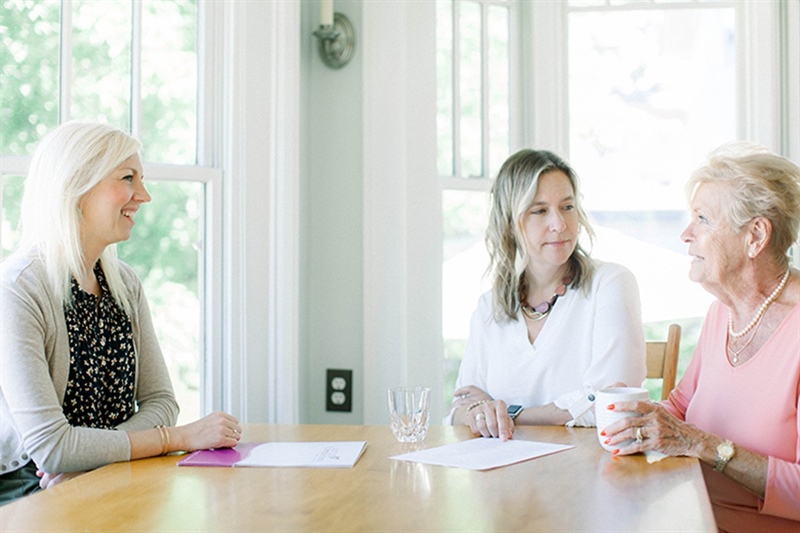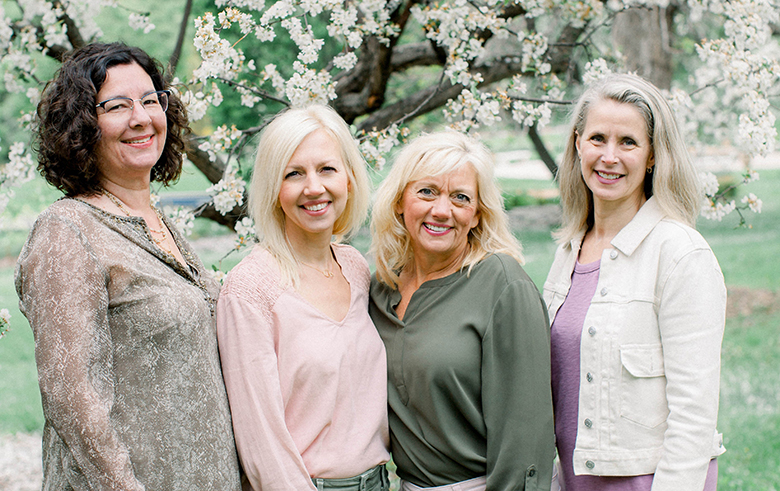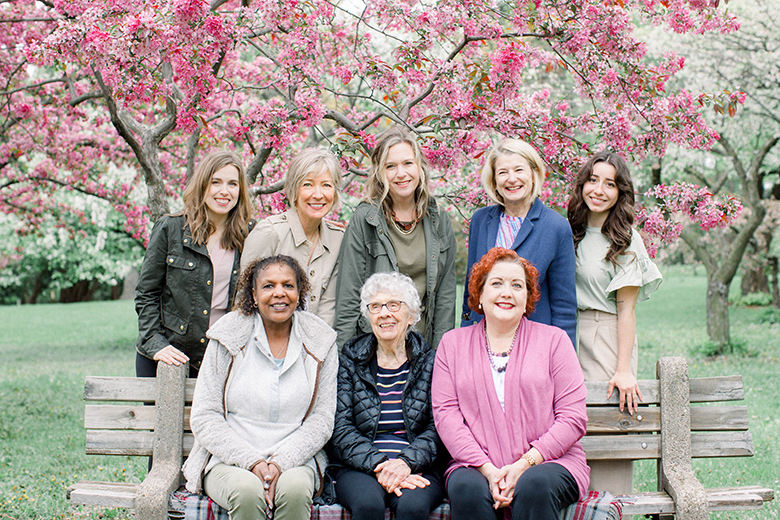Supporting a Parent With Young-Onset Alzheimer's: Navigating the Transition

Caring for a parent who is beginning to experience memory loss or early cognitive decline can feel overwhelming and, at times, isolating. If you’ve noticed your loved one struggling at work, becoming more forgetful, or needing extra supervision, please know:
You’re not alone on this journey!
Many families face similar challenges, and there are compassionate resources available for support. At Joyful Companions, we’ve witnessed a growing number of families in the Twin Cities navigating young-onset Alzheimer’s and dementia. Our dedicated, non-medical caregivers are here to offer not just practical help but also understanding and encouragement every step of the way.
Let us help you find the support and resources to aid your parents and yourself through this challenging transition.
Understand Young-Onset Alzheimer’s
According to the Mayo Clinic, Young-Onset Alzheimer’s is when symptoms begin to surface before the age of 65.
Most individuals diagnosed with Alzheimer’s are over the age of 65, and about 1 in 9 people in that age range in the U.S. have Alzheimer’s. However, the alarming statistic we’ve been seeing is that about 110 out of 100,000 adults between the ages of 30 and 64 have young-onset Alzheimer’s.
Young-onset Alzheimer’s and dementia can significantly disrupt a family’s lives, particularly when the individual is still in their working years. Globally, the number of people living with dementia, including young-onset cases, continues to rise.
Know the Unique Challenges of Young-Onset Alzheimer’s
If your parent has received a diagnosis of young-onset Alzheimer’s or another form of dementia, it can be life-altering for the entire family. As their child, chances are you will be the primary caregiver or support person for your parent, and navigating this transition is going to be challenging.
When an individual is diagnosed with young-onset Alzheimer’s, it presents distinct hurdles compared to late-onset Alzheimer’s patients, such as:
-
Unexpected career disruption that can lead to significant financial strain and loss of identity.
-
Adult children of young-onset Alzheimer’s patients may be raising their own families, working, and will face unforeseen caregiving responsibilities.
-
Feelings of isolation can be profound for both the parent and the adult children as they navigate the disease.
-
The shock, grief, and uncertainty can take a significant emotional toll.
-
Conditions like Primary Progressive Aphasia (PPA) present additional communication challenges that require a deeper understanding and more effective strategies.
Allow Yourself Time & Space to Grieve the Transition
Before you dive into your new life after diagnosis, take some time and space to honor this transition. If you’re feeling a profound mixture of sadness, relief, fear, confusion, or anger, it’s okay. Allow yourself to grieve. It is natural for you and your parent to experience an emotional rollercoaster.
Allow time to process these feelings, and consider consulting a specialized therapist to help develop coping strategies. Maintain open communication with the family about the diagnosis and its implications in an age-appropriate manner if there are younger family members.
Allow yourself to seek emotional support. In addition to individual therapy, you can also consider family therapy or counseling to help navigate the emotional challenges of this transition. Support groups specifically for families of young-onset Alzheimer’s patients provide invaluable peer support and understanding.
Prepare for Specific Challenges Your Parent May Face
As young-onset Alzheimer’s progresses, you will need to be understanding and compassionate about the struggles your parent will face, like:
-
Forgetfulness and cognitive decline
-
Inability to work or be left alone
-
Aphasia (loss of verbal skills)
-
Feelings of loneliness and isolation
-
Language difficulties
-
Changes in mood and personality
-
Difficulties communicating their needs or wants
-
Social withdrawal
-
Impaired judgment
Seek Help & Build a Support Network
You don’t have to face this challenge alone. Build a support network around you and your family that can help you navigate the challenges of this transition.
At Joyful Companions in Minnesota, our compassionate and professionally trained caregivers provide 24/7, round-the-clock support and care, including attentive memory care support, assistance with daily tasks, updates to family members, and reminders and cues throughout the day.

Tips for Building Your Support Network
Some ideas for your support network include:
Alzheimer’s & Dementia Resources in the Twin Cities
There are some national and Minnesota-based resources for Alzheimer’s and dementia patients and their families.
Here are a few options to consider if you need additional support.
Support Your Parent With Joyful Companions
Navigating the transition of supporting a parent with young-onset Alzheimer’s is a marathon, not a sprint. Be patient with yourself and your parent, seek knowledge and support, and remember that even small acts of care and understanding can make a significant difference in the quality of their life.
Reach out to the non-medical caregivers at Joyful Companions! Our faith-based organization provides much-needed support for families with loved ones who have young-onset Alzheimer’s.
With help from Joyful Companions, you and your parent can have the support you need whenever you need it.

Schedule a free consultation online or call us at 763-544-0401 for more information.
More Blogs About Alzheimer’s From Joyful Companions